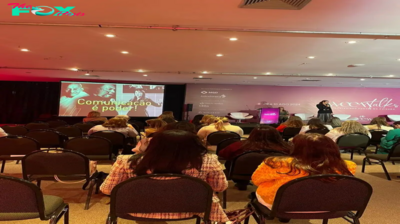Entertainment
Mussorgsky’s Khovanshchina in Berlin was fairly merely, excellent in each approach – Seen and Heard Worldwide
 Germany Mussorgsky, Khovanshchina: Soloists, Staatsoper Kids’s Refrain (director: Vinzenz Weissenburger), Staatsopernchor Berlin (director: Dani Juris), Staatskapelle Berlin / Simone Younger (conductor). Staatsoper Unter den Linden, Berlin, 2.6.2024. (MB)
Germany Mussorgsky, Khovanshchina: Soloists, Staatsoper Kids’s Refrain (director: Vinzenz Weissenburger), Staatsopernchor Berlin (director: Dani Juris), Staatskapelle Berlin / Simone Younger (conductor). Staatsoper Unter den Linden, Berlin, 2.6.2024. (MB)

Who writes? In historical past, as in its dramatisation, the query is essential, its reply typically complicated. It’s current, overtly, in Pimen’s chronicle in Boris Godunov, and it takes centre stage, later shifting rightward, leftward, and above in Claus Guth’s new manufacturing of Mussorgsky’s successor work, Khovanshchina for Berlin’s Staatsoper Unter den Linden. There’s additionally the fateful – maybe extra so than Marfa, in fortune-telling guise to Prince Golitsky – determine of the scrivener. How a lot, if in any respect, does his writing-for-hire set in course a collection of unintended, world-historical penalties? Writing might be thought of extra broadly and narrowly, in shut relation to what we now contemplate to represent a ‘textual content’ — and, in fact, studying. At any charge, opening within the trendy Kremlin, a statue of Peter the Nice towering (as, finally, would the two-metre-tall historic Peter) over an empty desk, with some goings on however the principle character – most likely correctly – by no means proven, simply because the Romanovs couldn’t be in Mussorgsky’s time. A functionary, seemingly someplace between secretary and researcher, gives historic data on the characters and drama that may unfold, transcribed for us (in German and in English) on screens above the motion. Given the data of Russian historical past Mussorgsky’s drama kind of assumes (although additionally elides), the vanity serves each as framing machine and extra straightforwardly as supply of helpful background — or ought to it’s commentary? Who writes, how and why? The framing is just not overdone, although; a part of me really wished extra had been made from it. Guth appears keener to focus on the work’s fragmentary tendencies, if something drawing consideration to the years handed between acts – themselves Rimsky-Korsakov’s grouping, whose reorganisation has not but been typically accepted – the place Mussorgsky, up to a degree, brings them collectively. Somebody apart from the composer has to put in writing right here, in any case, and it’ll in apply show to be greater than a single particular person.
If different Romanovs stay offstage, Peter, each as a younger boy and as a co-tsar getting ready to maturity typically watches, striding throughout the stage and (so I used to be instructed) additionally from a field above it (although sightlines prevented me and, I presume, a big a part of the viewers from seeing that). In any other case, the motion proceeds on the stage just about as one may ‘count on’. It’s tough to think about even probably the most hardened traditionalist objecting to the costumes – which, together with set designs, is normally all such an individual cares about – however they aren’t fetishised. This types, in any case, some type of investigation from the current as to how Peter attained and consolidated energy, eradicating those that may need opposed him. Generally we see on movie photographs from later Russian historical past. I can see the purpose, however I’m not positive they add a lot, particularly within the toppling of a statue of Lenin. (It may nicely be stated that the dissolution of the USSR was a disaster for Russia, and never essentially for the explanations Vladimir Putin would say it was, however it was unclear how that fitted in right here.) Generic historic crowd scenes had been much less of an issue, presumably intending to indicate the Petrine settlement to be much less conclusive than some would have claimed, although whether or not such doubling of the stage motion is fascinating was lower than fully clear. Likewise, while I believe I can see the purpose of getting Khovansky kill the Persian slaves, in a stylised illustration of the massacre of order, restoration, progress (name it what you’ll), it arguably appears an arbitrary approach of doing so.
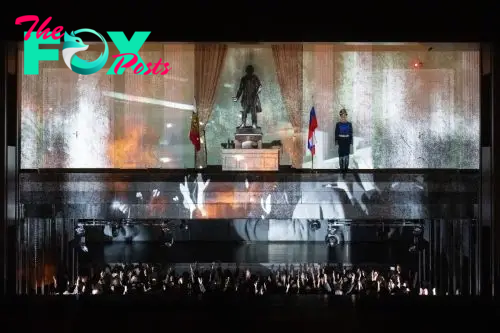
A firing squad turning brutally on the ‘pardoned’ Streltsy on the finish of the fourth act is a high-quality, correctly harrowing contact, serving each to organize the way in which for the self-immolation of the Outdated Believers within the closing act but in addition, I believe, to recommend these are totally different. Presenting their martyrdom as ‘resistance’, although, appears an unlucky secularism, sadly typical of so many administrators’ lack of ability to take non secular perception critically. The concept the up to date ‘venture’ breaks down is nice: an virtually Nietzschean view on the alleged ‘makes use of’ of historical past, one may say. The act, although, is actual, shifting, awe-inspiring, but no extra ‘resistance’ as is usually understood than the martyrdom within the closing scene of Poulenc’s Dialogues des Carmélites. It’s extra political than that, absolutely an important (and sometimes missed, maybe intentionally so, not least by Rimsky and his successor Shostakovich) be aware of questioning the complete Petrine and post-Petrine venture of Westernisation. Peter’s troops provoke the apocalypse for some, a far stranger and extra highly effective drama than is allowed right here. On the finish, although, as soon as the Outdated Believers have burned – use of video efficient in conveying the character of the act, if much less so its horror – we return to the fashionable Kremlin. If the ‘lesson’ has been deserted as ineffective or not less than unhelpful, what, one may ask, has been the purpose? It nonetheless occurred, one may reply; we now have nonetheless been proven somebody’s report, not less than. And not less than we don’t grow to be too entangled within the barely embarrassing ‘love story’, which, within the particular person of Marfa does its bit to bind issues collectively but is unquestionably slightly too ‘operatic’ for consolation.
There’s, additionally, the query of who compiles, orchestrates, and so forth. Listening to the first-act Prelude in Rimsky’s orchestration, instantly earlier than scripting this, I stay removed from satisfied of the prevalence of Shostakovich’s model of the opera (save for reversing Rimsky’s cuts and orchestrating these extra sections). It actually has its deserves, however so does Rimsky’s, and I can’t say I discover it comes nearer on the entire – typically it does; typically it doesn’t – to my fantasy of how Mussorgsky ‘ought to’ sound. Maybe, although, I’m responsible of taking Boris Godunov – and more and more its earliest model, given its current favour – as a mannequin, when Khovanshchina is a unique work, quite as if one had been to strategy Lulu anticipating it to be Wozzeck. There are additionally, in fact, problems with efficiency, whichever model is used. I ought to dearly love someday to listen to the work of Ravel and Stravinsky in full, however for now not less than we had Stravinsky’s extraordinary ending, one way or the other extra Mussorgskian even than Mussorgsky, and infinitely more true to any believable view of the work’s dramatic message. (Shostakovich, as Richard Taruskin noticed, not solely ‘ratified Rimsky’s [melioristic] view’ of the Petrine reforms however ‘even managed to strengthen it’. The composer of The Ceremony of Spring confirmed himself higher capable of think about and talk the world of the Outdated Believers.
Such selections had been, I assume, the province of conductor Simone Younger, most likely in dialogue with Guth. Younger’s personal conducting and the enjoying of the Staatskapelle Berlin had been wonderful all through, the latter sounding as golden because it did clear, and with out loss to precision. All was nicely positioned and nicely balanced. Adjustments of metre, the lifeblood of Mussorgsky’s conversational recitative, had been all through so nicely dealt with that one barely seen them as such; they aren’t, in any case, the jolts of Stravinskian neoclassicism, however quite based in a speech rhythm very totally different from the German ‘norm’ (and which, in fact, proved extremely iNFLuential upon the youthful Stravinsky specifically). This occurs vocally, in fact, however not less than as a lot within the orchestral ‘accompaniment’ (the Italian accompagnato appears wildly misplaced right here).
Point out of issues Italian brings me to my principal reservation: one in every of style greater than something elementary. Khovanshchina is significantly extra inclined than Boris to extra standard, even Italianate, vocal-melodic writing. This gave the impression to be the cue to a extra typically Verdian strategy, particularly through the first three acts. Components of Wagner – extra coincidental than the rest, I think – surfaced once in a while too, as did barely disconcerting kinship with Tchaikovsky. One thing rawer is actually attainable and, to my ears, extra ‘authentically’ Mussorgskian, textual points however. I shouldn’t exaggerate, although, and there might be no doubting both the sincerity or, by itself phrases, the success of Younger’s strategy with the orchestra, nor certainly the heat with which the viewers obtained it.
The forged was wonderful too, headed by a charismatic, characteristically detailed Mika Kares as Ivan Khovansky. Taras Shtonda exuded star high quality in what can hardly be apart from a charismatic function, that of Dosifey, chief of the Outdated Believers. Stephan RüGamer imparted his common intelligence to the a part of the thwarted reformer Golitsin. (His may, maybe even ought to, have been the higher path, however it was to not be.) George Gagnidze’s Shakolvity shone on every of his appearances, not solely his shifting account of Russia’s troubled historical past. Marina Prudenskaya gave all the pieces, returned with curiosity, to an all-encompassing efficiency as Marfa, finely complemented by Evelin Novak’s characterful, tender Lutheran EMMA and a spirited Susanna from Anna Samuil. Andrei Popov provided a well-judged Scrivener: one may sympathise with the predicament his lowborn standing introduced and admire why he may sing in additional noble, even florid fashion, with out shedding sight of his elementary opportunism. If I felt Najmiddin Mavlyanov’s Andrey at instances rather less sharply drawn, he got here extra into his personal afterward and likewise relished the alternatives a extra Italianate efficiency provided.
Dancers, well-choreographed by Sommer Ulrickson, contributed intelligently to the higher drama too. It was, although, the excellent refrain, expertly educated by Dani Juris, that really topped the efficiency: dramatically, harmonically based mostly, roots in a Russian previous which will or might not be invented, however actually got here to life within the right here and now. It was, fairly merely, excellent in each approach. Certainly on this work, as in Boris, there’s a elementary lesson on the individuals’s struggling to be realized therein.
Mark Berry
Manufacturing:
Director – Claus Guth
Set designs – Christian Schmidt
Costumes – Ursula Kudrna
Lighting – Olaf Freese
Choreography – Sommer Ulrickson
Video – Roland Horvath
Reside digicam – Jan Speckenbach, Marlene Blumert
Dramaturgy – Yvonne Gebauer, Rebecca Graitl
Solid:
Prince Ivan Khovansky – Mika Kares
Prince Andrey Khovansky – Najmiddin Mavlyanov
Prince Vasily Golitsin – Stephan Rügamer
Boyar Fyodor Shaklovity – George Gagnidze
Dosifey – Taras Shtonda
Marfa – Marina Prudenskaya
Emma – Evelin Novak
Scrivener – Andrei Popov
Susanna – Anna Samuil
Varsonofyev – Roman Trekel
Kuzka – Andrés Moreno García
Streshnev – Johan Krogius
Two Streltsy – Taehan Kim, Friedrich Hamel
Henchman – Dmitri Plotnikov
-

 Entertainment4h ago
Entertainment4h agoMike and Lauren Sorrentino Introduce Baby No. 3 to Kids in ‘Jersey Shore’ Exclusive Clip
-

 Entertainment8h ago
Entertainment8h agoNatasha Rothwell on Her Memorable Firsts
-

 Entertainment13h ago
Entertainment13h agoFace Me and Other Korean Medical Crime Shows That are Must Watch
-
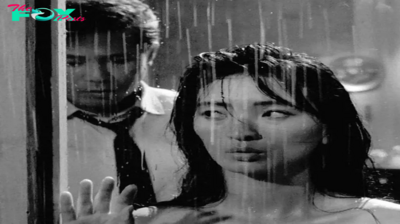
 Entertainment19h ago
Entertainment19h agoClassic Korean Movies Like Piagol to Add to Your Watch List
-

 Entertainment19h ago
Entertainment19h agoOver 60 Million People Tuned in to Watch Jake Paul vs. Mike Tyson
-

 Entertainment1d ago
Entertainment1d agoPopular Hudson Valley Italian Restaurant Addresses Closing Rumors
-
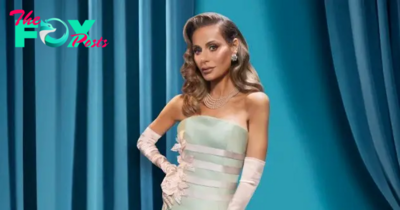
 Entertainment1d ago
Entertainment1d agoRHOBH’s Dorit Kemsley Addresses Viral Smoking Scene on Season 14 Premiere: ‘I Was Being Chased’
-
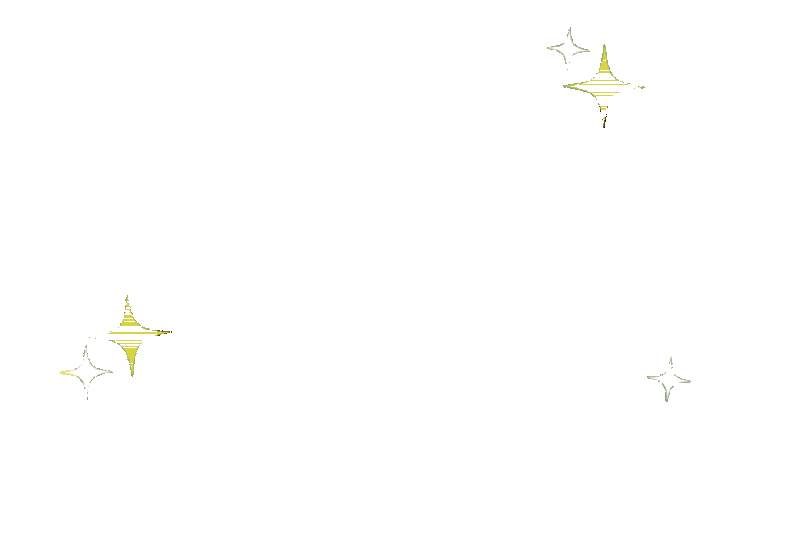
 Entertainment1d ago
Entertainment1d agoThe 10 Best Podcasts of 2024
